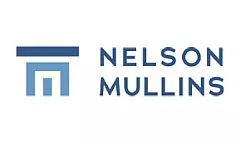- within Media, Telecoms, IT, Entertainment, Energy and Natural Resources and Consumer Protection topic(s)
- in United States
- with readers working within the Utilities industries
Sports betting has been somewhat of a pastime for Illinoisans, and the state legislature has yet again capitalized on the popular hobby. Illinois is currently the second-largest regulated sports betting market in the U.S., trailing only New York in terms of revenue generated.1 In an expedited fashion, the Illinois state legislature passed two bills that significantly raised the tax rate for sportsbook operators to help the state balance its new $55.2 billion budget. Both bills passed the state's dual chambers within 90 minutes of each other on Saturday night, May 31, without warning or fanfare, likely in an effort to minimize industry group pushback. Voting almost entirely along party lines, the Democratic supermajority passed the bills the night before June started, after which the state would have required a 60% majority for bills to pass rather than a simple majority (both bills exceeded the 60% threshold in the House but failed to meet 60% in the Senate).
Last year, lawmakers in Illinois raised the tax on sports bets from 15% to a 40% progressive tax rate. This past legislative session integrated an excise tax of 25 cents per bet on the first 20 million wagers accepted annually by a sportsbook operator and then 50 cents for every bet after the first 20 million wagers. The state is estimated to receive upwards of $40 million annually in additional revenue with the excise tax. These laws, effective July 1, make Illinois the only state to have a per-bet excise tax levied upon sportsbook operators. This prioritization of short-term fiscal viability over the long-term to the detriment of a key industry is nothing new.2 Rep. John Cabello, R-Machesney Park, said, "[w]e're rushing this process like we always do," to Capitol News Illinois, "[l]et's hide this stuff. Let's hide it so that the public doesn't see it until it's too late."3
The sportsbook operators will not be the only ones to feel the impact of these new taxes. Already, most of the largest mobile sportsbook operators in Illinois have announced a matching per-bet fee to be passed along to consumers on a per-bet basis.4 In addition, in order to stay viable in their Illinois operations, sportsbook operators may consider issuing less-favorable odds (taking in a higher vig) and offering fewer promos. The excise tax makes it more favorable to the operators to take in fewer, yet higher-dollar, bets – minimizing the incentive to advertise to the "average Joe." Sportsbooks may even raise the minimum wager amount (from usually about 5 cents) to decrease the overall volume of bets they accept each year, effectively passing off a higher burden to lower-dollar bettors.
Illinois is hardly the only state taking in larger margins from the sports betting industry by raising taxes. Maryland just increased its online sports betting tax by 5% (now 20%), and Ohio's 20% sports betting tax increase didn't pass, yet a 2% blanket-tax is currently being debated.5 Likewise, Colorado recently enacted a law sunsetting its "free bet" deduction provision,6 and Louisiana has a new law, effective August 1, raising the sports betting tax on gross gaming revenue from 15% to 21.5%. Sportsbooks have been attempting to remain profitable in the face of these increasingly scrutinous tax regimes.7
These taxes will, in effect, always be felt by the end consumer. Imposing higher burdens on sportsbook operators will also have a hindering effect on the industry's growth. Whether consumers agree with their respective state legislature's decisions, the harmful impact on the sports betting industry is certain. Industry groups and investors will be closely watching other state legislatures, hoping that Illinois has not set a precedent with its per-bet excise tax.
Nelson Mullins summer associate Ben Smith contributed to this blog.
Footnotes
1 Illinois Lawmakers Passed a Radical Sports Betting Tax Hike While Most Bettors Slept, last visited May 9, 2025.
3 Illinois Lawmakers Passed a Radical Sports Betting Tax Hike While Most Bettors Slept, last visited May 9, 2025.
4 Fanatics Follows FanDuel, DraftKings with Illinois Sports Betting Surcharge, last visited July 1, 2025.
5 New Illinois Sports Betting Tax Structure Could Lead to Wide-Scale Adjustments, last visited May 9, 2025.
6 C.R.S. § 44-30-1501(7)(c)(I.5).
7 See id.
The content of this article is intended to provide a general guide to the subject matter. Specialist advice should be sought about your specific circumstances.


